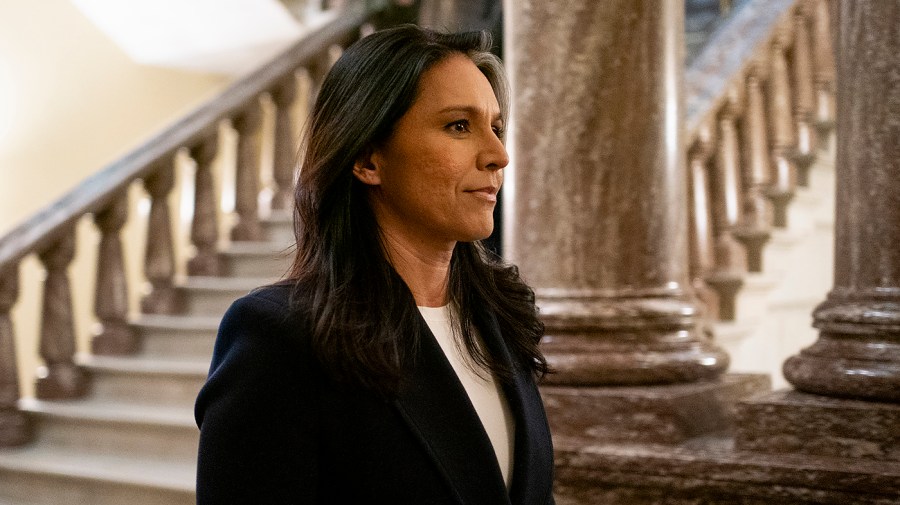
Tulsi Gabbard’s designation as director of national intelligence continues to invite skepticism. Critics question her qualifications and whether she has the experience needed to manage one of the nation’s most complex bureaucracies. Her foreign policy positions and combative political style add to concerns about her ability to build trust within the intelligence community and foster cohesion among its 18 components.
The director’s responsibilities extend far beyond management. The role requires delivering insights that are accurate, timely and actionable — no matter how unwelcome they may be — while contending with the inherent challenges of intelligence work and the growing pressures of a polarized political climate.
Whether Gabbard is confirmed or the role falls to another nominee, the next director of national intelligence will have to confront both unavoidable realities and essential principles that define the job. Navigating these will be critical to safeguarding the intelligence community’s integrity and the nation’s security.
Intelligence is often misunderstood as a tool to predict the future, a misconception that sets the intelligence community up for failure. Intelligence is not clairvoyance — it is about framing possibilities, identifying risks and clarifying what is known and unknown.
Intelligence analysts operate under immense pressure, tasked with interpreting incomplete and often contradictory information. Their role is not to eliminate ambiguity but to provide actionable context. This disciplined approach allows decision-makers to navigate complexity without false certainty.
The director must manage expectations, ensuring intelligence is seen as a tool for managing uncertainty rather than a scapegoat when ambiguity persists. This challenge will be particularly acute for a president-elect who has shown little patience for nuance. The next director of national security must resist demands to align intelligence with political narratives, knowing that the intelligence community’s credibility is paramount to its mission.
In crises, the demand for immediate answers is relentless. Policymakers, the media and the public often push for clarity when facts remain incomplete. This pressure can lead to premature conclusions or outright speculation, both of which undermine trust in the intelligence community’s work. The director must ensure intelligence remains grounded in evidence, not speculation. Analysts must articulate clear findings while acknowledging gaps, avoiding conjecture that could erode trust and misguide decision-making during critical moments.
This principle demands courage from the director. In an administration that has shown a willingness to politicize intelligence, the temptation to provide convenient answers will be strong. Yet the intelligence community’s independence cannot be compromised for political expediency. Clarity grounded in fact, not conjecture, must remain the foundation of intelligence.
The President’s Daily Brief is a cornerstone of the director’s responsibilities. Its purpose is to inform senior leaders, not validate political agendas or align with preexisting views. Its independence is essential. The director must create an environment where analysts feel empowered to deliver candid assessments, even when those findings challenge policymakers’ assumptions. Protecting the President’s Daily Brief from political interference ensures it remains an unvarnished source of information.
A President’s Daily Brief crafted to affirm rather than inform does more than fail its mission — it actively distorts reality, undermining national security. Previous directors of national intelligence have maintained its integrity. The next director of national intelligence must do the same, even in an administration where inconvenient truths may not be welcomed.
This task will be especially difficult under a president who has shown limited interest in the President’s Daily Brief and prefers intelligence that aligns with his worldview. Delivering hard truths without compromising the intelligence community’s credibility will require unflinching resolve, even if it invites political backlash.
No intelligence system is flawless. The nature of the work — interpreting incomplete, ambiguous, and contradictory information — makes failure inevitable. Yet these mistakes are too often framed as sole intelligence community shortcomings, ignoring broader systemic dynamics. Policymakers play a critical role in defining priorities, interpreting assessments and acting on intelligence. Failures often reflect breakdowns in these responsibilities, whether through miscommunication, selective use of intelligence or inaction.
Historical intelligence failures, from 9/11 to assessments about Iraq’s weapons of mass destruction, illustrate this interplay. While the intelligence community’s errors are well-documented, policymakers also share responsibility for ignoring warnings or over-interpreting data. These failures highlight the complexity of intelligence work and the shared accountability required for its outcomes.
Under the second Trump administration, the risk of weaponizing such failures for political purposes is high. The next director must resist efforts to deflect blame onto the intelligence community and instead foster a culture of learning. Framing failures as opportunities for systemic improvement strengthens the intelligence community’s resilience and prepares it for future challenges.
The intelligence community is staffed by dedicated professionals committed to protecting the nation. Their work is rarely flawless and often unwelcome, but their pursuit of truth is unwavering. The director of national intelligence must preserve the intelligence community’s independence and ensure its insights are valued, even under immense political pressure.
The American people deserve a director of national intelligence who leads with integrity and resilience. Anything less risks jeopardizing the intelligence community’s mission — and the nation’s security.
Brian O’Neill, a former CIA executive, is a professor of practice specializing in strategic intelligence at the Georgia Institute of Technology.












